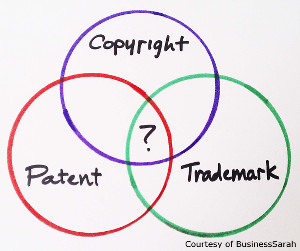he IPCLC workshop took place at the Oxford e-Research Centre on Thursday 11 December 2014. It was a free to attend that brought together researchers, research software engineers, University IP and Knowledge Transfer professionals. Take a look at the Agenda to see what is planned.
Intellectual Property, Copyright, Licensing and Commercialisation (IPCLC) Workshop
Intellectual Property, Copyright, Licensing and Commercialisation (IPCLC) Workshop
11 December 2014
Intellectual Property, Copyright, Licensing and Commercialisation (IPCLC) Workshop
 T
T
With representation from the qLegal team and case studies from University of Oxford Research Services and the Oxford Software Incubator, panel Q&A and discussion sessions, the workshop was an amazing opportunity to help the research software community make better informed decisions about Intellectual Property (IP), Copyright, Licensing and aspects of commercialisation. The workshop focused on digital assets such as software, data and models.
The workshop discussed IP issues and how they relate to academic research and collaborative projects. There was plenty of opportunities to ask experts questions, and to get advice about areas of confusion.
The workshop was the ideal opportunity for IP professionals from innovation departments in academia to meet a broad range of researchers and gain an understanding of the issues that concern them.
Topics
Some of the common topics that people had questions about are detailed below. These and other topics were explored at the workshop. Being inspired by the unconference format, so the precise content of sessions was dictated by the attendees.
- There is a lot of confusion around dealing with the IP that researchers develop and the associated licensing (e.g. around software). Who owns what, can I just put my software in an open repository, do I need institutional permission, and will this be onerous?
- What structures should researchers put in place if they hope to exploit their code in the traditional closed-source sense (even if this is not the lauded approach)? What might be the advantages and disadvantages of such an approach?
- How can you share IP with companies and/or other research based organisations for mutual benefit, how to deal with the fear of having ideas stolen or made unactionable? And conversely, how do companies work effectively with academic researchers and their projects?
- Do you "Publish or perish"? How do we balance the tensions between publication and exploitation?
